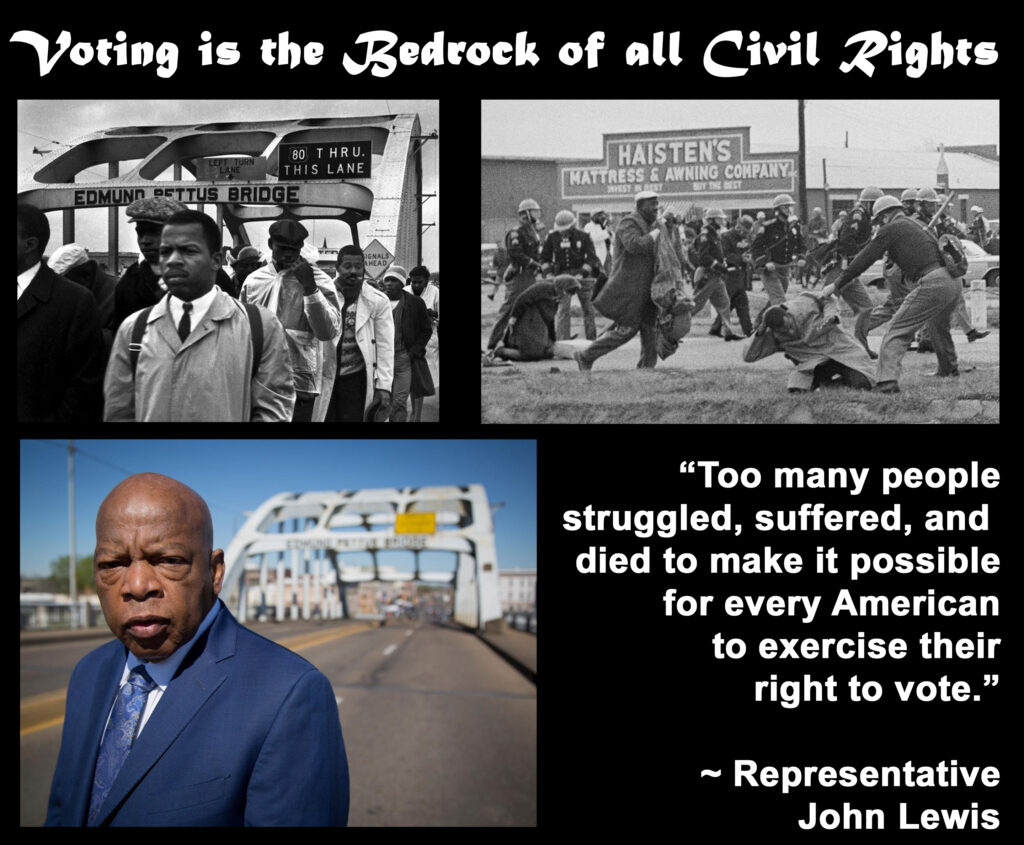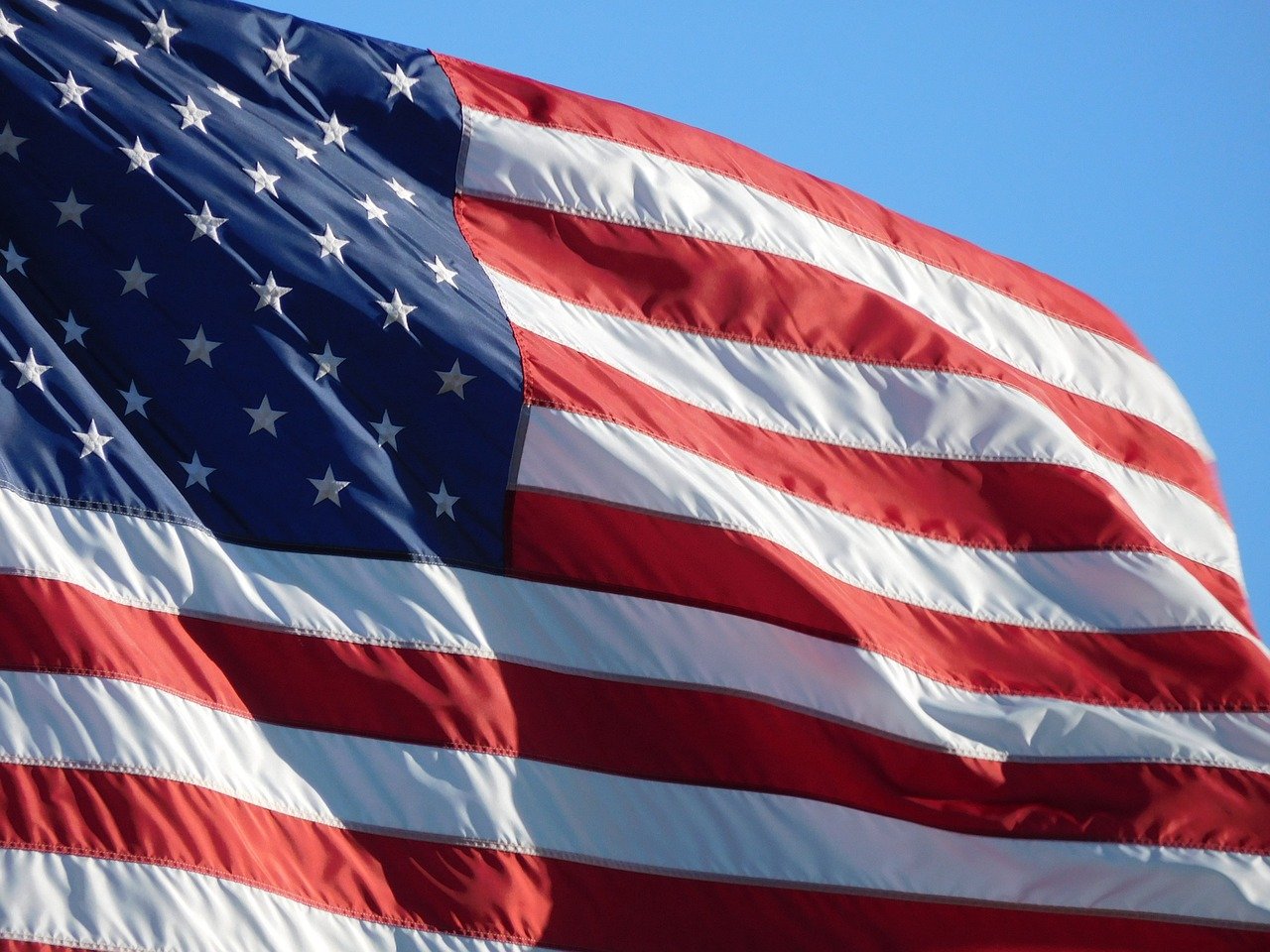
On this day in 1965, President Lyndon B. Johnson signed the Voting Rights Act of 1965 into law. It was a long time coming.
The 15th Amendment, passed by Congress on February 26, 1869, and ratified February 3, 1870, gave African American men the right to vote. However, because of poll taxes, literacy tests, and other challenges, Southern states made it was difficult for African Americans to vote.
In March of 1965, nonviolent activists crossed the Edmund Pettus Bridge in the now infamous march from Selma to Montgomery Alabama to demonstrate the desire of African American citizens to exercise their constitutional right to vote. Congressman John Lewis, who recently passed, was one who participated in that March.
The violence at that “Bloody Sunday” event prompted the passage of the Voting Rights Act. The law was written to overcome legal barriers at the state and local levels that prevented African Americans from exercising their right to vote.
The Voting Rights Act is considered one of the most far-reaching pieces of civil rights legislation in the United States. The act banned the use of literacy tests, provided for federal oversight of voter registration in areas where less than 50 percent of the non-white population had not registered to vote, and authorized the U.S. attorney general to investigate the use of poll taxes in state and local elections.
Since its passage, the Voting Rights Act has been amended to include such features as the protection of voting rights for non-English speaking American citizens.

Before his death, Rep. John Lewis wrote a final essay urging all people to exercise their right to vote and keep fighting.
“Voting and participating in the democratic process are key. The vote is the most powerful nonviolent change agent you have in a democratic society. You must use it because it is not guaranteed. You can lose it.”
I will be participating in the 2020 elections by Voting at Home. I urge you to join me. By voting absentee, we protect the poll workers and we make it easier for those who cannot vote by absentee ballot to participate in the election process, while still remaining safe, should the COVID-19 virus still be a concern, as many experts predict.
Please reach out if you need assistance with registering to vote or the absentee “Vote at Home” process. I’m here to help.
